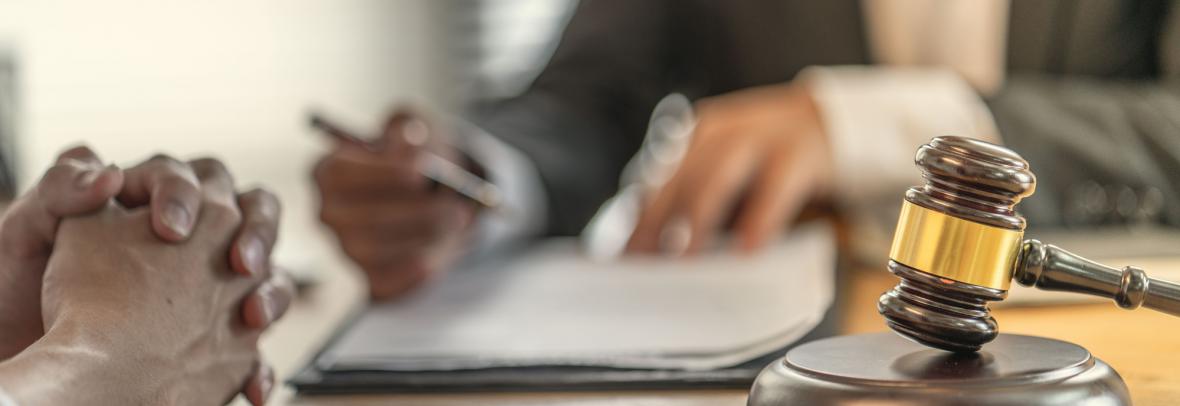
Why Estoppel Certificates Matter in Real Estate
An estoppel certificate verifies lease details, rent status and disputes, protecting buyers from surprises. Request it early to ensure a smooth real estate closing.
MIAMI — When buying or selling real estate in Florida, a lot of details need to be ironed out before closing. One of the most important steps in the process is obtaining an estoppel certificate. But what exactly is it, and why is it crucial to get it before closing?
In this blog post, we'll break down what an estoppel certificate is, why it's needed and how it can affect your real estate transaction.
What is an estoppel certificate in real estate?
An estoppel certificate is a legal document used in real estate transactions that confirms certain facts about a property. Typically, it's issued by a property's landlord, confirming key details about the lease agreements in place, including rental payments, the duration of leases, and whether there are any outstanding issues or disputes with tenants.
When buying or selling commercial or residential real estate, obtaining an estoppel certificate is essential to ensure that there are no hidden issues that could affect the property's value or the terms of the transaction.
Why do you need an estoppel certificate before closing?
Before you finalize a property purchase, you want to be sure that everything is in order. The estoppel certificate is one of the final steps to verify key details. Here are a few reasons why you should never skip this step:
1. Confirm the status of lease agreements: If the property you're purchasing has existing tenants, an estoppel certificate will give you a clear picture of the lease agreements in place. It confirms the terms of the lease and whether there are any issues, such as unpaid rent or unresolved disputes. This ensures you won't inherit any unpleasant surprises after closing.
2. Verify rent payments and arrears: An estoppel certificate also outlines whether the tenants have made their rental payments up to date. This is crucial because if tenants are behind on their payments, it can affect the income you expect to receive from the property or even lead to legal issues. This certificate protects you from assuming liabilities that weren't disclosed earlier.
3. Protect against future disputes: By having the estoppel certificate in hand, you're ensuring that the tenant and landlord are in agreement on critical terms. If there is any discrepancy or potential dispute about lease terms, the certificate helps clarify these issues, potentially avoiding future legal battles.
4. Verify the terms of the lease: The certificate will also outline the specific terms of the lease, including expiration dates, renewal clauses, and rent increases. Knowing these details beforehand gives you the power to make informed decisions about the future of the property.
How to obtain an estoppel certificate
The process of obtaining an estoppel certificate varies depending on the property type and the landlord-tenant situation. Generally, the buyer will request this document from the seller or the landlord, who will then complete and sign it. In some cases, the certificate may be obtained directly from the tenants.
If you are a landlord or property owner, be sure to have a template ready to issue whenever needed. On the flip side, as a buyer, make sure you clearly request the estoppel certificate as part of the due diligence process, ideally before your closing date.
Potential pitfalls: What to look out for
While the estoppel certificate is a useful tool, there are a few potential pitfalls to watch out for:
1. Inaccuracies in the certificate: If the certificate contains incorrect information, it can lead to disputes later on. For example, if rent arrears are not disclosed or the tenant claims benefits that don't exist, these discrepancies could affect your investment and your legal rights.
2. Timing issues: If you wait too long to request an estoppel certificate, you might run into issues with the timing of the closing. You need to ensure that the certificate is delivered on time, so make sure you request it early in the process. Delays in obtaining this document could jeopardize your closing.
3. Failure to act on the information: Sometimes, buyers may overlook red flags in the estoppel certificate, such as unpaid rent or tenant complaints. It's crucial that you thoroughly review the document with your legal team to make sure you're not taking on an unwanted burden.
Conclusion: Don't skip the estoppel certificate
In real estate transactions, an estoppel certificate serves as a vital piece of the puzzle. It ensures that the property you are purchasing is free from surprises regarding lease terms, rent payments, and potential tenant issues. By requesting this document early in the process, you can protect your investment and ensure a smooth closing.
The content of this article is intended to provide a general guide to the subject matter. Specialist advice should be sought about your specific circumstances.
© Mondaq Ltd, 2025
